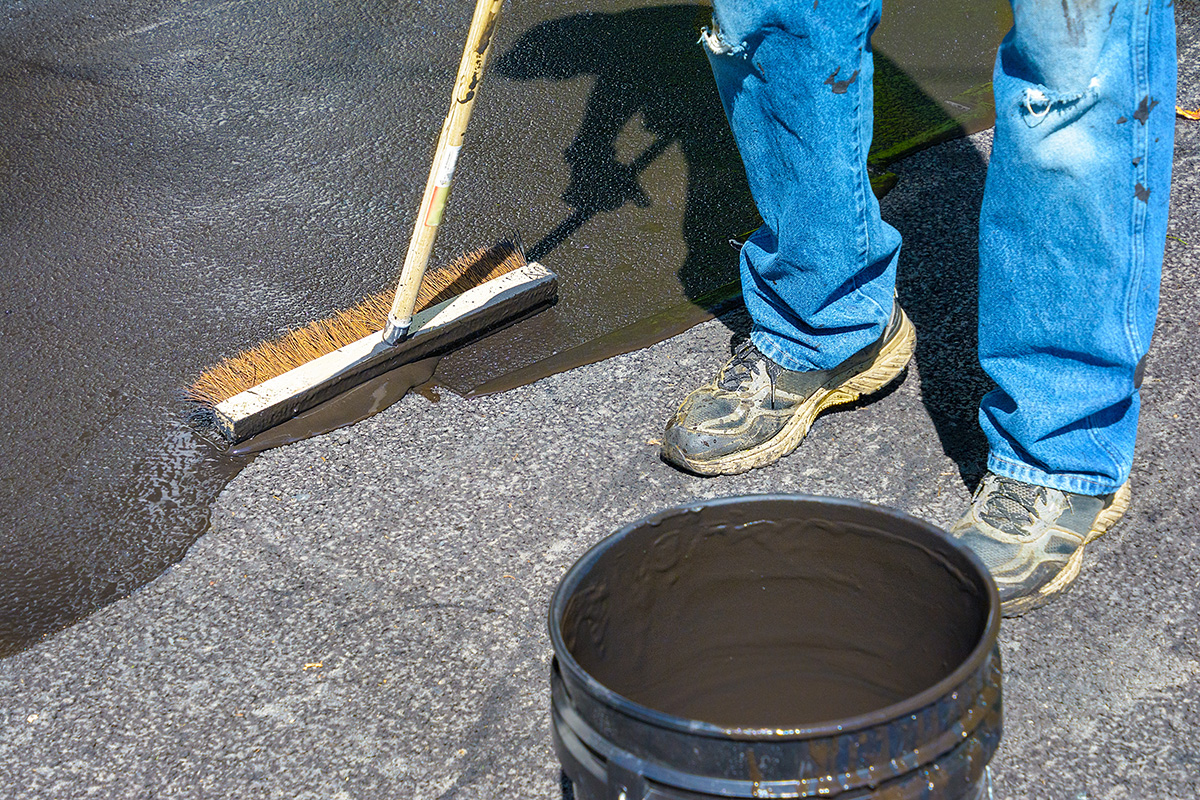Warm Mix Asphalt: A Lasting Remedy for Sidewalk
Warm Mix Asphalt (HMA) has actually arised as a leading sustainable selection for sidewalk solutions, supplying a myriad of environmental benefits and cutting-edge modern technologies. As the need for environment-friendly construction techniques grows, exploring the subtleties of HMA's sustainability can provide beneficial insights right into the future of pavement services.
Ecological Benefits of Hot Mix Asphalt

In Addition, Hot Mix Asphalt aids to reduce city heat island impacts. Its dark color soaks up sunlight, minimizing the quantity of heat mirrored back into the environment contrasted to lighter-colored sidewalks. This can lower ambient temperatures in city areas, reducing the need for air conditioning and eventually lowering energy usage.
Furthermore, Warm Mix Asphalt adds to boosted stormwater management. Its porous nature allows water to infiltrate the pavement and charge groundwater products, reducing runoff and the risk of flooding. These environmental benefits make Warm Mix Asphalt a sustainable choice for paving freeways and roadways.
Power Performance in HMA Manufacturing
Is energy efficiency a vital element in the production of Hot Mix Asphalt (HMA)? Power plays a substantial function in the production of HMA, influencing both expense and environmental sustainability. One vital element of power effectiveness in HMA production is the usage of warm mix asphalt (WMA) modern technologies.
In addition, developments in plant modern technologies have led to even more energy-efficient HMA production processes. By optimizing power use in HMA production, the market can reduce its carbon footprint while keeping top quality sidewalk products.
Recyclability of Hot Mix Asphalt
The recyclability of Hot Mix Asphalt (HMA) is a crucial aspect of its sustainability and long-lasting ecological influence. HMA is one of the most recycled materials in the USA, with over 100 million loads of recovered asphalt sidewalk (RAP) being recycled yearly in brand-new sidewalk construction. Reusing HMA supplies a number of environmental benefits, such as lowering the requirement for virgin materials, decreasing energy consumption throughout manufacturing, and decreasing the amount of waste sent to garbage go to my blog dumps.
The process of reusing HMA entails grating the existing pavement, crushing it into smaller sized items, and mixing it with brand-new accumulation and asphalt binder to produce a recycled mix. In general, the recyclability of HMA plays a significant duty in advertising sustainable practices within the sidewalk market.

Long-Term Efficiency of HMA
Asphalt sidewalks demonstrate toughness and resilience over a prolonged period, showing the lasting performance of Warm Mix Asphalt (HMA) Additionally, innovations in HMA technology, such as the usage of polymer-modified binders and warm mix asphalt, have actually further improved the resilience and long life of HMA sidewalks. By focusing on quality building and maintenance practices, HMA continues to show itself as a lasting and cost-effective solution for resilient sidewalk facilities.

HMA: Longevity and Sustainability
Demonstrating both resilience and sustainability, Warm Mix Asphalt (HMA) has actually ended up being a foundation in the construction of resilient sidewalk frameworks - commercial parking lot paving. HMA's toughness comes from its ability to withstand heavy lots, severe weather conditions, and high website traffic volumes, making it a dependable selection for roadways, freeways, and airport terminal Your Domain Name runways. The structure of HMA, which typically consists of accumulations, binder, and filler, plays an important duty in improving its long life and resistance to tear and use
In addition, HMA's sustainability hinges on click this its recyclability and energy-efficient manufacturing process. The capacity to reuse reclaimed asphalt pavement (RAP) in brand-new HMA mixtures decreases the need for virgin products and minimizes the environmental effect of sidewalk building and construction and upkeep. Furthermore, the power performance of producing HMA lies in its lower mixing temperature levels contrasted to various other pavement materials, causing lowered energy consumption and greenhouse gas emissions.
Final Thought
In verdict, warm mix asphalt (HMA) uses a sustainable solution for sidewalk with its eco pleasant attributes. HMA's recyclability, energy efficiency in manufacturing, and long-term toughness make it an eco-friendly choice for road building.
HMA is one of the most recycled products in the United States, with over 100 million heaps of reclaimed asphalt pavement (RAP) being recycled yearly in brand-new pavement building and construction.The procedure of recycling HMA includes milling the existing sidewalk, crushing it right into smaller items, and mixing it with brand-new accumulation and asphalt binder to create a recycled mix.Asphalt sidewalks demonstrate longevity and strength over an extended duration, reflecting the lasting performance of Warm Mix Asphalt (HMA) Additionally, innovations in HMA technology, such as the use of polymer-modified binders and warm mix asphalt, have actually even more enhanced the toughness and durability of HMA sidewalks. The capacity to recycle reclaimed asphalt sidewalk (RAP) in new HMA mixtures minimizes the demand for virgin products and decreases the ecological impact of sidewalk building and maintenance.
Comments on “Raise Commercial Charm: Warm Mix Asphalt Sealing for Angled Parking Lots”